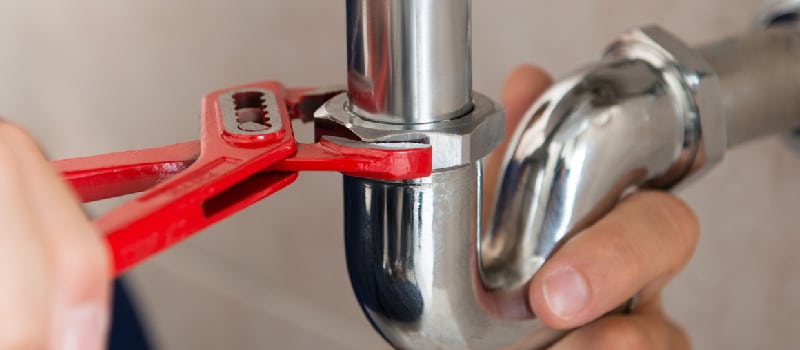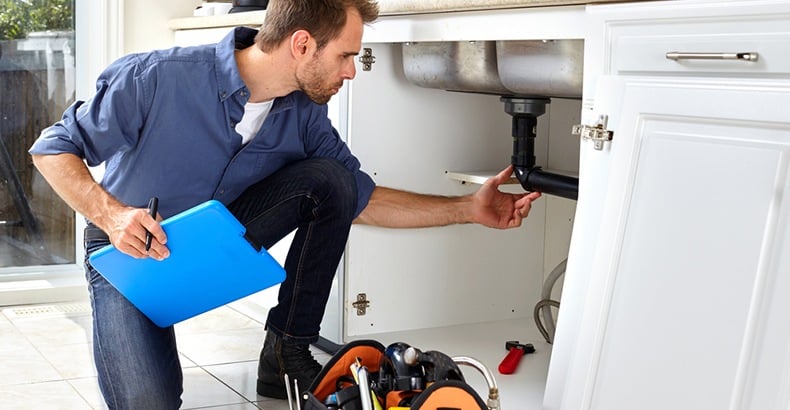When to Consult a Plumber: Five Frequently Occurring Appliance Issues You Shouldn't Ignore
When to Consult a Plumber: Five Frequently Occurring Appliance Issues You Shouldn't Ignore
Blog Article
We have found this post relating to Basic Plumbing Appliances Maintenance directly below on the internet and concluded it made good sense to talk about it with you in this article.

Have you ever before had a trouble with your dishwashing machine and not know if to call the plumber or electrical expert? Well, we're below to clarify.
Numerous devices have a little bit of electrical power and also plumbing. For instance, a water heater, dish washer, or cleaning machine are family appliances that might need a plumber and/or electrician's interest.
You might have to determine what part of the appliance is damaged before making that telephone call. Call your emergency plumber right now if you experience any one of these typical device troubles.
Spoilt Ice manufacturers
Yes, your refrigerator is an electric device. Your plumber will not fix your fridge or fridge freezer, however if it has an ice maker attached, you should call your plumber to deal with that component.
Your ice manufacturer has its water line, and also this connection can get dripping or clogged. When you change your fridge, you should reconnect your ice manufacturer, or else it might create a mistake.
Your plumber can analyze your ice manufacturer as well as tell you if it is redeemable. You can transform your icemaker without transforming your refrigerator if it's not.
Defective washing machines
It's a bit extra difficult with a cleaning maker. Your cleaning maker is most likely to have a plumbing-related mistake than an electric one. Firstly, lots of washing equipment mistakes can be connected to water stress. If the water your machine obtains is as well quick, it may destroy also the electric parts. In this situation, replacing the component will certainly not quit the damage, only cost you more money.
A plumber can additionally identify wear and tear on the machine's plumbing components. For instance, we can spot a dripping or ruptured pipe and also also strained plumbing job.
Faulty hot water heater
The decision is easy if you have a gas water heating unit. Nonetheless, if you use the even more contemporary electrical water heaters, you may be torn.
Professional plumbing technicians recognize the intricate workings of a water heating unit as well as can identify a water heater more properly than any person else. A plumber will do a more comprehensive task for your water heating unit.
Dripping taps
A dripping tap is your plumber's organization. The issue may be as basic as a couple of stopping working faucet components, or it might be due to a larger issue like expensive water stress, or infected water, especially if your tap features a filter. Tough water may also be destroying your kitchen area devices.
Normally, your tap's durability depends upon the material it's made of, as well as its top quality. A premium faucet can last over a years.
Running toilets as well as clogged up drains
Naturally, running toilets as well as clogged drains are your plumber's specialty. Your plumber can deal with any type of drainpipe, even if it is on an electrical tool.
Professional plumbing technicians recognize the intricate workings of a water heating unit and also can discover a water heating system more accurately than anybody else. Even if the issue occurs to be wiring associated, your plumber will be able to fix it. A plumber will certainly do a much more complete work for your water heating unit.
A leaking faucet is your plumber's service. The issue might be as straightforward as a couple of falling short tap parts, or it may be because of a bigger problem like too high water pressure, or contaminated water, particularly if your tap comes with a filter.
Simple Fixes for Common Appliance Problems
Disposer
All disposers have an overload feature that automatically shuts off the power when the motor becomes overloaded and gets too hot. Once the motor cools, simply push the reset button on the side of or under the unit.
On the other hand, if it hums but doesn’t spin, it may have something stuck in it. Switch the disposer off, then try working through it by turning the blades with a special disposer wrench (sold at home centers) or by turning a bottom bolt. Many disposers have an Allen wrench for that purpose, inset on the bottom of the machine.
Lights
When a light goes out or a switch doesn’t work, you should first check the main electrical panel for a tripped circuit breaker. But don’t stop there. Before you change out light bulbs and switches, see if a GFCI outlet (which may be upstream from the troubled light or outlet) has tripped. Sometimes all the bathrooms or the outside lights are powered through a single GFCI located in one bathroom or elsewhere, such as in a basement. Simply push the reset button on the GFCI and you could be back in business.
Refrigerator
If your refrigerator conks out on a hot day and you have a cat or a dog, immediately check the coils for pet hair. Service pros find this problem on half of their refrigerator calls. The coils are the black tube-and-wire grid that cools the fluid in the compressor. A buildup of hair will cause the compressor to overheat and trigger the overload switch. On many fridges, you get to the coils by opening the grille at the bottom of the refrigerator. Then push a coil cleaning brush (sold at home centers) into the coils, pull it back and vacuum it clean.
If the coils are located on the back, pull out your fridge (it’s often on rollers) and brush them off. Bonus: The clean coils will cool more efficiently and save you money on your utility bill!
Once the overload switch is tripped, you may have to wait a few hours for it to cool. It will reset itself and turn the refrigerator back on.
Electric range
If your electric stove burner won’t heat, turn the burner off and pull it out from its socket. Then plug it in again and wiggle it around. If it feels loose, remove the burner again and gently bend the burner prongs slightly outward for a tighter connection. Easy does it. You could end up pushing the whole socket out of its bracket.
https://www.familyhandyman.com/project/simple-fixes-for-common-appliance-problems/

I am very drawn to Basic Plumbing Appliances Maintenance and I'm hoping you liked the new blog entry. Appreciated our blog? Please share it. Let others find it. I am grateful for your time. Visit again soon.
Order Repair Report this page